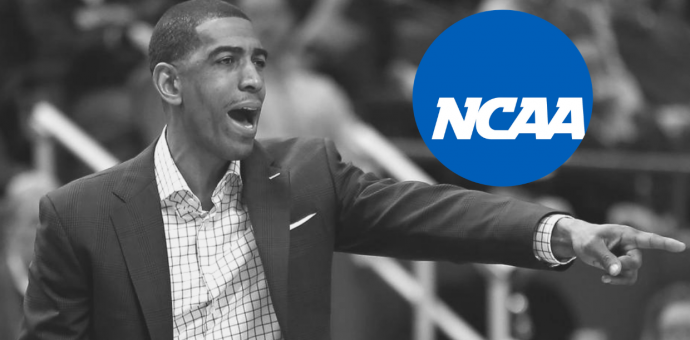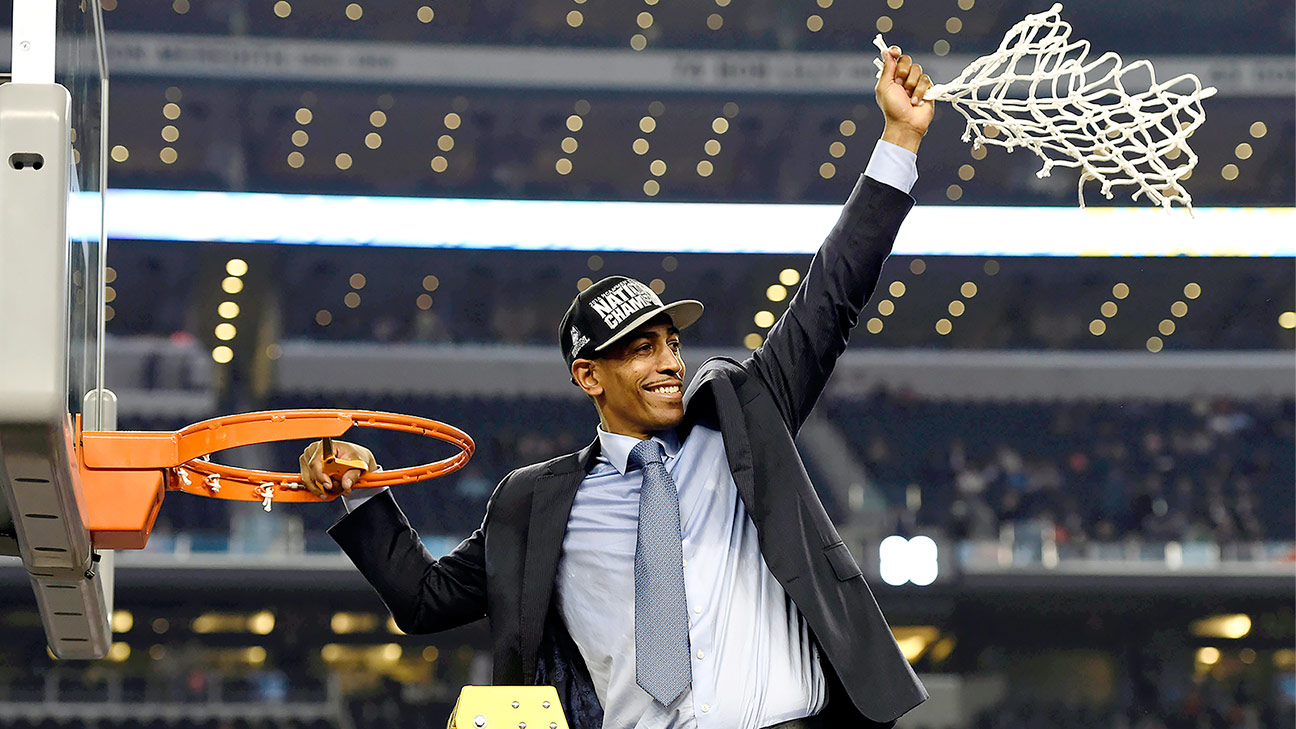The NCAA released it’s report today on their investigation into Kevin Ollie, and his oversight of the UConn men’s basketball program during his tenure as the head coach there. The full infractions decision can be found HERE. Below is the release of the findings from the NCAA:
A former UConn head men’s basketball coach violated NCAA head coach responsibility rules when he failed to monitor his staff and did not promote an atmosphere of compliance, according to a Division I Committee on Infractions panel.
The committee also said the former head coach violated NCAA ethical conduct rules when he knowingly provided false or misleading information during the NCAA enforcement investigation and declined to participate in a second interview with the enforcement staff and school.
“This case illustrates the importance of full candor and cooperation in the infractions process, as well as head coach control,” the committee said in its decision. “The former head coach faltered in both respects, increasing the severity of his violations and allowing violations within the program to occur for most of his tenure.”
The committee said the men’s basketball violations primarily stemmed from three situations: pickup games exceeding preseason countable athletically related activity limits, a video coordinator counting as a coach and resulting in more than the allowable number of coaches, and a booster providing extra benefits to student-athletes.
Over the course of four years, former men’s basketball student managers attended preseason pickup games played by student-athletes. The committee noted the pickup games became countable athletically related activity when the student managers attended the games, kept statistics for participating student-athletes and regularly printed, copied and distributed them to coaches. The games happened two to four times a week. The committee determined the program exceeded the allowable amount of activity. The former head coach was aware that the games took place and did not report them to the compliance staff or ask if they were permissible, according to the committee. He also failed to monitor the student managers’ actions to ensure the games followed NCAA rules.
The program’s former video coordinator reviewed plays with and answered questions for student-athletes on and off the basketball court. The committee determined that the instruction exceeded the responsibilities of his position, causing him to become a countable coach and the program to exceed its countable coaches limit. The video coordinator reported to the head coach, but the committee said the former head coach did not monitor the coordinator’s actions or ask questions about the nature of the film review.
A trainer, who was friends with the former head coach and became a booster of the university, gave free on- and off-campus training sessions to three student-athletes. While at the off-campus training sessions, the trainer also provided free lodging, meals, transportation and access to a private gym. The committee noted the impermissible benefits resulted in the student-athletes competing while ineligible. The former head coach denied knowing that the student-athletes trained with the trainer, but the committee found that multiple individuals corroborated that the head coach knew about both the on- and off-campus training.
The committee said multiple Level III violations occurred, including impermissible recruiting contacts by a booster and former professional basketball player, impermissible recruiting benefits to prospects and their families, and an impermissible number of recruiting-person days.
During his interview with the enforcement staff and school, the former head coach also denied planning or arranging a video call between a prospect and a former professional basketball player, but the committee noted there was substantial information in the record that demonstrated that the head coach did in fact plan and arrange the call.
“Failing to give the enforcement staff truthful information significantly harms its ability to conduct a thorough and timely investigation,” said the committee’s report. “The conduct was contrary to the standards of ethical conduct that the membership expects of athletics staff entrusted to set an example for student-athletes.”
- Two years of probation.
- A three-year show-cause order for the former head coach. During that period, any NCAA member school employing him must restrict him from any athletically related duties unless it shows cause why the restrictions should not apply.
- A vacation of records in which men’s basketball student-athletes competed while ineligible. The university must provide a written report containing the contests impacted to the NCAA media coordination and statistics staff within 45 days of the public decision release.
- A limit of 12 men’s basketball scholarships during the 2019-20 academic year, a reduction by one from the allowable 13 scholarships (self-imposed by the university).
- Recruiting restrictions, including:
- A one-week ban on men’s basketball unofficial visits during the 2018-19 academic year (self-imposed by the university) and a two-week ban during the 2019-20 academic year.
- A one-week ban on recruiting communications in men’s basketball during the 2018-19 academic year (self-imposed by the university).
- A reduction of four men’s basketball recruiting-person days during the 2018-19 (self-imposed by the university) and 2019-20 academic years.
- A one-visit reduction from the permissible number of official visits in men’s basketball during the rolling 2018-19 and 2019-20 two-year period.
- A $5,000 fine (self-imposed by the university).
Members of the Committee on Infractions are drawn from NCAA membership and members of the public. The members of the panel who reviewed this case Michael F. Adams, president emeritus of Georgia; Jody Conradt, retired head women’s basketball coach and special assistant to athletics at Texas; Thomas Hill, senior vice president emeritus at Iowa State; Joel Maturi, chief hearing officer for the panel and former Minnesota athletics director; Gary L. Miller, chancellor at Green Bay; Larry Parkinson, director of enforcement for the Federal Energy Regulatory Commission; and Roderick Perry, athletics director at Indiana University-Purdue University Indianapolis.







